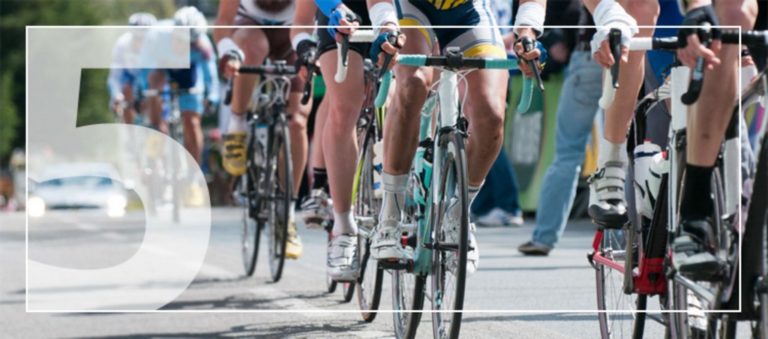Just over half of the world’s population — almost 57% — uses some form of social media. The average user spends nearly 2.5 hours browsing it per day. In other words, social media platforms can be an ideal place to promote your events.
While you could take out ads on Facebook or Instagram, organic event marketing could prove more effective. It hits differently than ads do, and your posts may have more of an impact on your audience. However, organic marketing has become much more competitive.
For your event promotion efforts to stand out, you’ll need to up your social media game.
1. Take Some Time To Learn Who Your Audience Is
With traditional event promotion — think billboards, radio spots, and event flyers — your name goes in front of everyone with the hope that you attract attendees. Social media event marketing allows you to target specific audiences more precisely. You can still cast a broad net, but your event gets into the feeds of those who might be interested in attending your event.
For organic event marketing to work on social media, you first need to understand the people in your target audience. If you’re a more seasoned event marketer, you likely already know at least some information about them. Generally speaking, you should know their:
- Age range
- Gender
- Education
- Geographic location
- Hobbies
- Income
- Occupation
Your previous attendee data can provide valuable demographic information if you’ve held the event in the past and collected this information. Otherwise, you can gain some insights by scoping out competitors who have hosted similar events. You could also send a survey to the people on your email list to gauge their interest and collect essential data.
Once you have the information, create some potential attendee profiles. You can use those profiles to help you tailor your organic social media strategy and create engaging content that will resonate with your actual followers online.
2. Determine the Best Social Media Platforms for Organic Event Marketing
Social media has grown substantially in just the last few years. In addition to Facebook, there’s Instagram, Twitter, YouTube, LinkedIn, and TikTok. Rather than trying to market on every channel, focus your organic event marketing efforts on the platforms where your target audience spends the most time.
Here are a few things you can do to narrow down which social media sites you should focus on:
- Ask your followers which platforms they use most often.
- Do you have a blog? See where your readers are sharing your posts.
- See which sites your competitors use. If they’re not on it, you’re not likely to find your target audience there, either.
You can also look at some of the demographic data for the various social media sites. Comparing your attendee profiles to that information could help you determine the best channels for organic event promotion.
Facebook is the largest and most frequently used platform. It could be worth your time to develop a presence on the site and use it for promoting your upcoming events.
3. Set Goals for Your Event Promotion on Social Media
Regardless of which social media platforms you choose, you’ll want to set goals. Knowing what you want to achieve is vital for getting the most out of your marketing efforts. Ask yourself:
- Are you looking to increase your event registrations or ticket sales?
- Are you trying to boost the awareness of your event?
- If you’ve held the event in the past, do you want to attract more first-time attendees this time around?
The SMART goal-setting framework can be helpful here. Let’s say that you want to increase your attendee numbers. What does that mean for you and your event? Be as specific and realistic as possible.
4. Use Hashtags
People are constantly uploading posts and sharing content, making it easy for an individual post to get lost in the fray. For an event professional trying to spread the word about your latest event, one of the last things you want is for your promotional efforts to go unnoticed.
Hashtags help boost organic reach by categorizing posts into topic-based groups. They also make it easier for social media users to search for posts they find relevant to them. In a way, they’re like the keywords you use to optimize your website and blog content for search engines.
Select the hashtags that will help you reach your target audience more effectively. That may require a bit of research to identify the most relevant words and phrases. You can — and probably should — even develop a new hashtag specific to your event. It should be relevant, unique, and straight to the point.
Hashtags tend to be most effective on Instagram and Twitter. You can use them on Facebook, too, but it can be more challenging to monitor how people are interacting with them.
5. Curate Your Content
The idea of creating something almost every day to promote your event can feel like a daunting task, especially when you’re trying to promote it on multiple social media channels. Gathering content ahead of time can make the process easier. When you want to post something, you’ll have an entire pool of great ready-to-go content from which you can pull.
The question then becomes, what types of content should you post for your organic event marketing campaigns? Here are a few ideas to get you started that can help you generate excitement amongst your following:
- Behind-the-scenes clips of event preparation
- Countdown posts — you can even create a countdown clock in your Instagram stories
- Event teaser videos
- Information about event swag and exclusive discounts
- Interviews with speakers, special guests, sponsors, exhibitors, volunteers, and others
- Photos from last year’s event, if you’ve held the event in the past
- Q & A sessions
6. Schedule Your Posts
You’re already busy enough planning and organizing your event. Creating a content schedule can help keep you more organized. It can also keep you from accidentally forgetting to make your posts.
How often you should make your event promotion posts across your chosen social media channels will vary a bit between each platform. In general, aim to post something three to five times a week. Once-daily posts are ideal for keeping you at the top of your followers’ feeds and fresh in their minds.
Rather than give yourself an extra task in your daily to-do list, you might even consider investing in software to automate your social media posts. There are various free and paid social media scheduling tools available that will publish your posts on all of your chosen platforms at the times you choose, effectively managing the task for you.
7. Engage With Your Followers
Engagement is a vital part of organic event marketing on social media. When someone leaves a comment, respond to it or like it. If someone asks a question, answer it. Be sure to answer any questions that followers send you through direct messaging promptly, too. Being responsive shows your followers that you’re present and that you care. They may feel more favorably toward your brand and your event, which could be the push they need to register or buy tickets.
If you find your follower engagement lacking, find ways to encourage conversations. Ask questions in your posts. Depending on the specific content, you may be able to ask for advice or tips. Getting more comments — including people talking with one another through the comments section — can do wonders for boosting your engagement rates.
8. Encourage Sharing
There’s a good chance that the people interested in your brand and your events know others who might be interested, too. Expand your reach by asking your current following to spread the word.
One way to do this is to ask your followers to share the posts you make about your event. You can also tap into the world of user-generated content. In other words, your event attendees make content for you!
Remember the event-specific hashtag you created? Before your event, encourage followers to post pictures or comments using that hashtag. During your event, ask your attendees to share any photos they take on their social media profiles — again, you’ll want that hashtag included. You could even incentivize people to make posts by creating a photo contest and offering prizes like free tickets, an upgraded VIP experience, or exclusive discounts.
If your event happens annually — or you plan to make it an annual affair — you can borrow from the user-generated content to promote your event next year.
9. Track Your Progress and Make Necessary Adjustments
Your organic event marketing efforts will be for nothing if you don’t know how well they’re working. Measuring your progress, and comparing it to your marketing goals, will be crucial. Keep an eye on such metrics as:
- How your posting frequency affects your impressions
- What time of day seems to be the most effective
- Which types of posts get the most engagement
Monitoring your progress will allow you to make necessary adjustments as you go. That way, you can get the most out of your organic social media event promotion.
Step Up Your Organic Social Media for Events, Expand Your Reach, and Attract More Attendees
Social media offers an effective platform for promoting your events. While you can pay for ads to reach your target audience, nothing can take the place of organic social media event marketing.
Sharing the latest updates to generate excitement, engaging your followers, starting conversations, and encouraging sharing can all help you build a community and foster connections in ways paid ads can’t. However, the two strategies can work together well. In other words, investing in organic event marketing on social media is well worth the effort.
Are you looking to plan and organize an event? Events.com is here to help you every step of the way, from planning to promotion to running your actual event. Schedule your free demo today!




